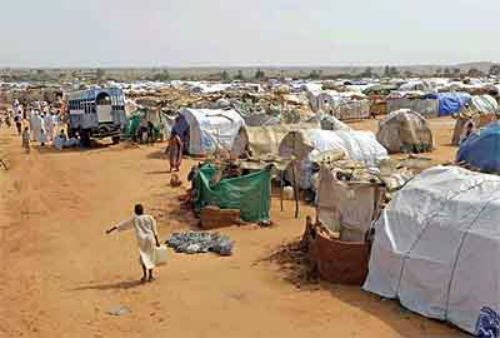
This Al Jazeera dispatch hardly suggests that humanitarian access has improved in Darfur or anywhere else in Sudan:
“Hundreds of thousands of people do not receive the lifesaving help they need because of challenges in accessing communities”—Norwegian Refugee Council
Norwegian Refugee Council ranks country as number three in world’s neglected crises as fighting [in Darfur] enters its 14th year. [Actually, the conflict is entering its 15th year; its beginning is typically dated to February 2003–already over 14 years ago—ER]
June 1, 2017
http://www.aljazeera.com/news/2017/06/4000000-sudanese-displaced-fighting-170601165141799.html
June 1, 2017 (SSNA) — Almost 4,000,000 Sudanese have been forced from their homes in 14 years of tribal violence and battles between government and opposition fighters, the Norwegian Refugee Council says.
[This is a badly misleading summary explanation of displacement in Darfur: the vast majority of the “fighting” has been violence directed against the non-Arab/African civilian tribal populations of Darfur, by Khartoum’s military (the Sudan Armed Forces/SAF) and its Arab militia allies—ER]
The aid group listed Sudan as number three in its latest report, The World’s Most Neglected Displacement Crises, saying almost five million Sudanese were now dependant on humanitarian aid, with three million of those living in the war-scarred region of Darfur.
“Hundreds of thousands of people do not receive the lifesaving help they need because of challenges in accessing communities,” the council said before blaming “a 40 percent shortage in funding and a lack of international media attention to the crisis.”
Darfur has been unstable since 2003 when different groups complaining about marginalisation by the Sudanese government started an armed campaign. The conflict attracted a government-backed militia known as the Janjaweed, which were blamed for widespread killings that have been labelled as genocide. Jan Egeland, secretary-general of the Norwegian Refugee Council, said: “The international community has not only forgotten these crises, but has never really shown sufficient willingness to contribute to a solution. “Many of the displaced people have fled their homes multiple times, and each time they get increasingly vulnerable.”
Babar Baloch, spokesman for the UN refugee agency UNHCR, told Al Jazeera: “You have a situation where people are running for a conflict in South Kordofan [Sudan] and coming to South Sudan. “But South Sudan is also in conflict, there is famine, more than half of the population is facing food insecurity and a quarter of them are displaced, including in Darfur and Kordofan.”
Eric Reeves is a Senior Fellow at Harvard University’s François-Xavier Bagnoud Center for Health and Human Rights.

